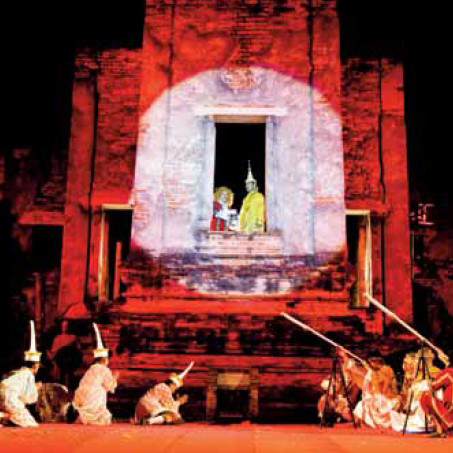งานวิจัยและบทความ

ยุทธศาสตร์ระยะยาวเพื่ออนุรักษ์มรดกไทย: บทบาทพลเมืองในจังหวัดลพบุรี
โดย ภูธร ภูมะธน
เผยแพร่เมื่อ 1 กุมภาพันธ์ 2024
การอนุรักษ์และสงวนรักษามรดกวัฒนธรรม
แหล่งจัดเก็บทรัพยากรต้นฉบับ
วารสารสยามสมาคม Vol. 100 (2012)
ดาวน์โหลด
Long-term Strategies for Thai Heritage Preservation: Civil Roles in Lopburi Province

ประสบการณ์กว่าสามทศวรรษของผู้เขียนในการการมีส่วนร่วมอย่างแข็งขันเรื่องการอนุรักษ์มรดกวัฒนธรรมไทยในจังหวัดลพบุรี ผู้เขียนกล่าวว่านี่เป็นยุคสิ้นหวังสำหรับความพยายามในการอนุรักษ์มรดกวัฒนธรรมไทย ผู้คนที่พยายามจะอนุรักษ์ ทำได้แค่ช่วยชะลอการทำลายลงเพียงเล็กน้อย เพราะกระบวนการทำลายล้างดำเนินไปในอัตราที่เร็วกว่าความพยายามในการอนุรักษ์ร้อยเท่า สังคมไทยในปัจจุบันให้ความสำคัญกับทุนนิยมมากกว่าคุณค่าทางจิตวิญญาณ ฝ่ายการเมืองแย่งชิงอำนาจบริหารและประเทศของเราก็ยึดการตลาดและการพัฒนาเศรษฐกิจเป็นศูนย์กลาง
อย่างไรก็ตาม ผู้เขียนยกตัวอย่างกรณีศึกษาเกี่ยวกับของคนเล็กคนน้อยที่ใส่ใจและห่วงใยมรดกวัฒนธรรม และยังมีหลายคนที่สามารถระดมพลเพื่อสนใจในการอนุรักษ์ ผู้เขียนเจ้าเล่าถึงประสบการณ์ในการรณรงค์อนุรักษ์มรดกวัฒนธรรมในจังหวัดลพบุรี ซึ่งเป็นที่รู้จักในฐานะศูนย์กลางทางการเมืองการปกครองที่เก่าแก่มาก และเป็น "เมืองหลวงที่สอง" ในรัชสมัยสมเด็จพระนารายณ์ รวมทั้งบริเวณโดยรอบยังรุ่มรวยไปด้วยแหล่งโบราณคดียุคก่อนประวัติศาสตร์ ถ้ำ ป่าไม้ ภูเขา และชุมชนชาติพันธุ์ที่มีเอกลักษณ์เฉพาะตัว ผู้เขียนเสนอหลักการสำคัญสองประการ ที่ถือเป็นกุญแจสู่ความสำเร็จในงานอนุรักษ์ และทบทวนปัญหาของการอนุรักษ์มรดกวัฒนธรรมในจังหวัดลพบุรี